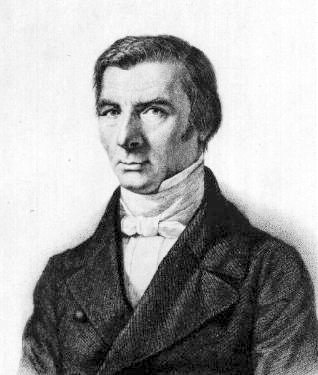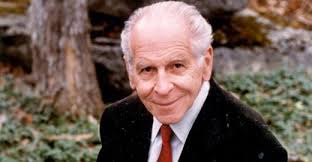This week, thanks to the Independent Institute (which lists me as a research fellow), I was interviewed by NPR’s Marketplace (American Public Media) for a piece on Donald Trump’s threat to impose tariffs on goods that come from China. (It’s the first story for the January 3 show here at 2:44.) The interviewer wanted to look back at the effects of the Reagan administration’s protectionist policies against Japan. (In 1988 I wrote a paper for the Cato Institute on Reagan’s appalling protectionism.)
I’ve done many media interviews, but this one really drove home the media’s lack of interest in informing their listeners and viewers on important economic topics. Of course, the producers of the show would themselves have to understand economics in order separate what’s important from what’s unimportant. This may be a case of the blind leading the blind. At any rate, what follows is a lightly edited transcript of the interview and what was aired from the interview. (The questions are paraphrases since my audio files have only my answers.)
Would you say that Reagan’s trade restrictions against Japan worked?
You have to define the word worked, don’t you? If worked means that they raised prices to American consumers and also to American producers who needed to buy some inputs from Japan, yes, they worked. But that was a bad thing. Raising prices through the political system is not a good, and Americans should not support that. Did they work to restore the health of the American economy? I would say there were no grounds for thinking that.
Should we have trade agreements?
I think we should have unilateral unconditional free trade, which means we should not have trade agreements. If you look at trade agreements, they are thousands of pages long. Why is that? Why don’t they just say, “At midnight tonight all barriers and restrictions on imports to the American people are hereby abolished.” That’s one very short paragraph. The reason there are thousands of pages is that there are tons of exceptions, all kinds of technical things and loopholes that are special-interest favors. And so there are no grounds for having agreements. Now I understand the political reasons; politicians in America who may want to open up our market because it’s good for consumers have a hard sell because Americans don’t think in terms of economics…. So therefore the politician likes to say, “Look, they’re opening their markets so it’s okay if we open our market.” Politically they may need to do that, but it should be done with the fewest amount of restrictions, no restrictions. There a lot of bad things in all of those trade agreements. For one thing, the U.S. forces very stringent intellectual property rules on foreign countries when we enter these agreements, bilateral or multilateral. Those are very bad, those intellectual property laws. That’s another subject I realize, but they do interfere with trade.
Here’s what people don’t get about trade: imports are the benefits from trade. Exports are the costs we pay to get imports. We want goods. This goes back to Adam Smith. So to act like the good part of a trade agreement is that they open up foreign markets and that it’s a downside that we have to open up our markets is completely wrong-headed. The good side of a trade agreement is the opening of our markets because we want goods and services. We want a higher standard of living, which means lower cost/higher quality goods.
What do you make of Trump’s position on trade?
There’s one of two possibilities. One is that he doesn’t understand the benefit of free trade. That’s highly possible. He went to the Wharton School, so it may be hard to believe that he doesn’t understand economics. The other is that he understands that trade is good, but he’s trying to appeal to the lowest common denominator of people who don’t understand economics and who think that open trade with foreigners is bad. But in either case he is backing and proposing terrible policies, and he’s brought people into his administration who share those policies — most prominently Peter Navarro, who seems to want to go to war with China, and Wilbur Ross, Trump’s commerce secretary-designate, who similarly, while enamored of China’s five-year plans, also wants trade conflict with China. Trump said a lot of appalling things on the campaign trail, as we all know, but one of the most appalling, which got very little comment, was when he said China “rapes” us, “rapes” the American people. I can’t think of a more evil statement. Trade is not rape. Trade is the opposite of rape. Trade is consensual, where both parties benefit or else the trade does not take place. So for him to use language like that is absolutely appalling. It’s anti-economic progress. It’s anti-individual liberty.
So you’re against trade agreements?
Ideally, we should not need trade agreements. The U.S. government should simply abolish all trade restrictions so that individual Americans are free to buy what they want from whomever they want. Trump sees all this as deal-making. Deal-making should be left to individuals. When I go to Walmart I’m making a deal buy Chinese goods if that’s what I want. So no-trade-agreements is ideal. Second best, if it’s politically necessary, would be wide-open trade agreements that did not impose restrictions on foreign countries and did not grant special-interest exceptions to specific American producers. So there’s my one-two.
Americans still bought Japanese cars after Ronald Reagan forced the government of Japan to limit exports. So was the policy really a barrier to American consumers?
Yes. Number one, we had to pay more for cars. Asking if that’s a bad thing is like going to a doctor and asking if health is good. You don’t want to pay more for products. If government is forcing people to pay more for products that’s bad. Number two, the Japanese manufacturers switched to higher end, more-luxury cars because if the price was going to be higher, they weren’t going to send the less-expensive ones that Americans were eating up like crazy — which is why the American auto industry complained about Japan in the first place. So we got less choice at a higher price.
But Americans kept buying Japanese cars.
Yes, but if they had to spend more for cars that means they had less money in their pockets to buy other things. See, this is a lesson in trade. If I have to spend more for a car, I have less money now. That money might have been spent on some American product. That firm now doesn’t get my business because I don’t have money left over. Or money I have invested is now unavailable, which means someone who would have borrowed that money from the bank and started up a new company and hired people couldn’t do that because all of us American car-buyers had to spend more on cars. You see how you can’t do just one thing? There’s a law of ecology that says you can’t do just one thing. It’s true of economics too. You always have to look at secondary effects and beyond, and you have to look for the “unseen,” which is difficult because it’s unseen. If I would have bought a Japanese car are in the ’80s, no one knows how I would have spent the money left over had the price been lower. Even I don’t know how I would have spent the money if I had bought the car at the lower price before the intervention. That’s all unseen. That’s a loss. Somewhere workers didn’t get jobs. Some entrepreneurs didn’t have the capital to start new companies. That’s all loss, but it’s not on the books because it never happened. It’s a dream unfulfilled.
But government policy can’t manipulate the consumer, right?
That depends on the elasticity of demand. Some people, I assume, didn’t buy a Japanese car, maybe kept their car longer, an older more-polluting car, by the way, because the price went up, hoping the price would come down in a year or two. You know, individuals do different things. There’s no law (i.e., principle) about how individuals will act if a tariff raises prices. Some will keep their old good for a while longer; others will bite the bullet and pay the higher price. But, as I said, they can’t buy something else too. All kinds of things happen. How it all nets out is very difficult to say, and any macroeconomist who tells you he can say for certain how that all played out is mistaken. There’s no way. We’re talking about millions of individuals making decisions based on their own plans and aspirations — all this sort of subjective stuff. That’s what drives an economy. It’s acting individuals. The economy’s not a machine, where you can predict what will happen if you pull this lever and step on that pedal. We’re talking about people. So, no, it’s hard to make predictions, and it’s hard to even look after the fact and say, “Here’s what those tariffs meant.
Now here’s what was aired of that interview:
Reporter: Back when the U.S. restricted imports of those Hondas and Toyotas, the price went up. But people still bought them. Today U.S. consumers have gotten used to buying cheap imports from China. Sheldon Richman is with the the Independent Institute, a free-market think tank.
Me: There’s no law about how individuals will act if a tariff raises prices.
Reporter: So if the U.S. hiked prices on Chinese imports, who knows? Maybe we’d keep buying them even if they were a bit more expensive.
* * *
I’m not saying I should have had more airtime. Shows like Marketplace are of course under tight time constraints. But if the producers were interested in informing their listeners, they would have edited my segment something like this:
Reporter: Back when the U.S. restricted imports of those Hondas and Toyotas, the price went up. But people still bought them. Sheldon Richman points out:
Me: If I have to spend more for a car, I have less money now. That money might have been spent on some American product. Or money I have invested is now unavailable, which means someone who would have borrowed that money from the bank and started up a new company and hired people couldn’t do that because all of us American car-buyers had to spend more on cars.
That would have taught the listeners Bastiat’s lesson of the seen and unseen. Instead, the report suggested tariffs on Chinese goods might make little difference because Americans might continue to buy them anyway.
(Cross-posted at the Independent Institute.)












